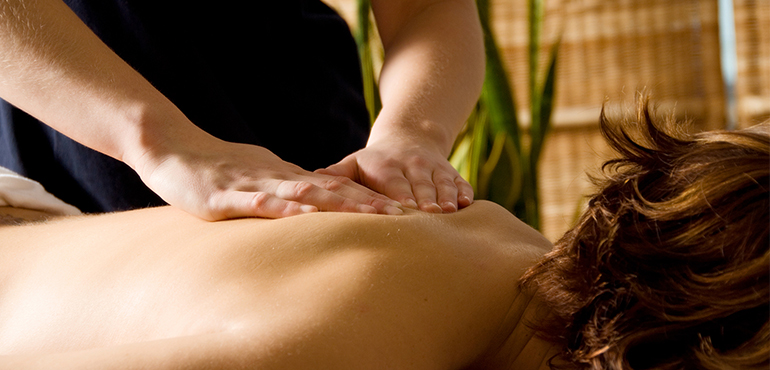Massage Terminology
Massage therapy is a profession in which the practitioner applies manual techniques, and may apply adjunctive therapies, with the intention of positively affecting the health and well-being of the client. Massage therapy decreases stress and helps control pain. Perhaps less known is the effectiveness of massage therapy in treating deeper structures of the body such as ligaments, bones and joints, fascia, blood vessels, organs and other soft tissues of the body. Massage therapy can provide relief for many common conditions such as migraine headaches, tendonitis, arthritis, osteoporosis, fibromyalgia, sports injuries and various other soft tissue sprains and strains.
Massage – is a manual soft tissue manipulation, and includes holding, causing movement, and/or applying pressure to the body.
Therapy – is a series of actions aimed at achieving or increasing health and wellness.
Manual – means by use of hand or body.
Cranio-Sacral – is a technique for finding and correcting cerebral and spinal imbalances or blockages that may cause sensory, motor or intellectual dysfunction.
Deep Tissue – releases the chronic patterns of tension in the body through slow strokes and deep finger pressure on the contracted areas, either following or going across the grain of muscles, tendons and fascia. It is called deep tissue, because it also focuses on the deeper layers of muscle tissue.
Effleurage – is a stroke generally used in a Swedish massage treatment. This smooth, gliding stroke is used to relax soft tissue and is applied using both hands.
Friction – is the deepest of Swedish massage strokes. This stroke encompasses deep, circular movements applied to soft tissue causing the underlying layers of tissue to rub against each other. The result causes an increase in blood flow to the massaged area.
Myofascial Release – is a form of bodywork that is manipulative in nature and seeks to rebalance the body by releasing tension in the fascia. Long, stretching strokes are utilized to release muscular tension.
On-site Massage – (also known as chair massage or corporate massage) – is administered while the client is clothed and seated in a specially designed chair. These chairs most often slope forward allowing access to the large muscles of the back. On-site massage usually lasts between 15 and 30 minutes and is intended to relax and improve circulation.
Petrissage – (also called kneading) – involves squeezing, rolling and kneading the muscles and usually follows effleurage during Swedish massage.
Reflexology – massage based around a system of points in the hands and feet thought to correspond, or "reflex," to all areas of the body.
Rosen Method – utilizes gentle touch and verbal communication to help clients to release suppressed emotions and subsequently muscular tension in some instances.
Shiatsu and Acupressure – Oriental-based systems of finger-pressure which treat special points along acupuncture "meridians" (the invisible channels of energy flow in the body).
Sports Massage – massage therapy focusing on muscle systems relevant to a particular sport.
Swedish Massage – a system of long strokes, kneading and friction techniques on the more superficial layers of the muscles, combined with active and passive movements of the joints.
Tapotement – is executed with cupped hands, fingers or the edge of the hand with short, alternating taps to the client.
Trigger Point Therapy – (also known as Myotherapy or Neuromuscular Therapy) – applies concentrated finger pressure to "trigger points" (painful irritated areas in muscles) to break cycles of spasm and pain.

